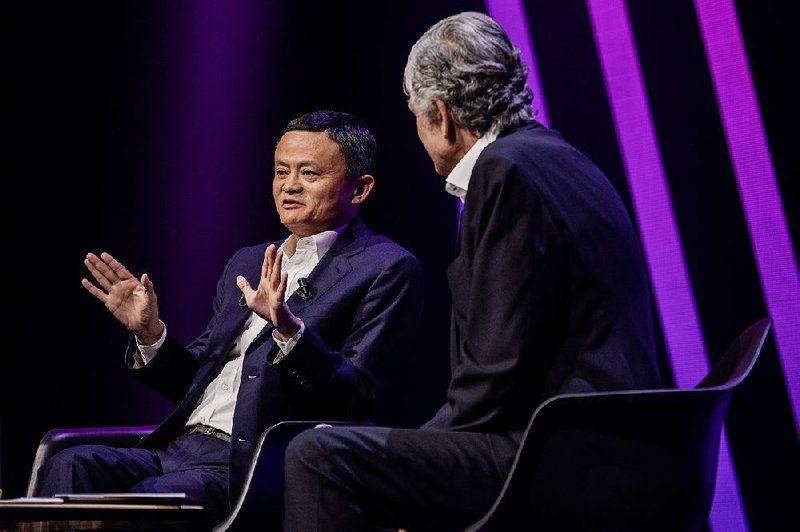NEW YORK -- China's e-commerce juggernaut Alibaba Group Holding Ltd. will allow small and medium-size U.S. businesses to sell on Alibaba.com.
U.S. businesses, until Tuesday, were able to buy merchandise only on the platform.
Two years after billionaire founder Jack Ma promised President Donald Trump that he would help create 1 million American jobs, Alibaba is opening up its wholesale platform to U.S. sellers who want to tap a multitrillion-dollar global procurement market.
The initiative could generate new income and goodwill for Alibaba in the U.S., particularly as Washington and Beijing spar over trade. The threat of rising tariffs is now encouraging businesses to source their merchandise and components locally, said John Caplan, president of Alibaba's North American business-to-business effort.
U.S. business owners "increasingly want to find domestic producers because of trade concerns, and this platform will allow them to do that," Caplan told Bloomberg News. He anticipates strong demand for American agricultural produce and consumer products. "Anything you put on or in your body."
Alibaba will send staff members to promote the service to businesses and local chambers of commerce, and plans a September promotional event to drum up awareness, Caplan added.
Alibaba says the platform has 10 million active business buyers in more than 190 countries and regions. A third of the order volume is from U.S. businesses, Caplan said.
Sellers will have to pay an annual registration fee of about $2,000, but it won't charge commission for each sale, unlike Amazon, Caplan said.
"The success of this program will depend on whether Alibaba can recruit a strong number of successful sellers," said Jillian Ryan, principal analyst at researcher eMarketer. "It will ultimately determine whether Alibaba will be able go toe-to-toe with Amazon in the B2B [business-to-business] commodity market."
The Chinese Internet powerhouse is opening up Alibaba.com just as a decelerating home economy depresses the top line. The online retailer is expected to soon post its slowest quarterly revenue growth in three years.
In March, Alibaba.com and Office Depot announced a co-branded online store to expand the reach of both companies with small and medium-sized businesses. It said at the time that it was part of a broader array of services the companies were providing to small businesses.
Over time, the companies intend to help U.S. small businesses sell their products to buyers around the world through Alibaba.com, the wholesale trade site of the Alibaba Group. It marked Alibaba.com's first U.S. partnership with a major retailer. On Tuesday, it announced that Robinson Fresh, a division of C.H. Robinson, will be another "anchor seller" on the platform.
There are about 30 million small businesses in the U.S.
The lion's share of business for Alibaba Group Holding Ltd. has been providing retailers and brands in the U.S. and around the globe access to the 700 million Chinese customers through its two major marketplaces Taobao and Tmall.
Unlike those two better-known consumer bazaars, Alibaba.com was originally envisioned as a way to match foreign firms with Chinese wholesalers of everything from watches and shoes to raw textiles. Operating under the motto "global trade starts here," Alibaba.com now connects about 150,000 mostly Chinese sellers. It had some 650,000 registered U.S.-based companies as of 2017.
Alibaba.com is the Alibaba Group's oldest business but now accounts for just a sliver of revenue, mostly through membership fees, marketing and shipping assistance.
Information for this article was contributed by Anne D'Innocenzio of The Associated Press; and by Lulu Yilun Chen and Olivia Rockeman of Bloomberg News.
Business on 07/24/2019

